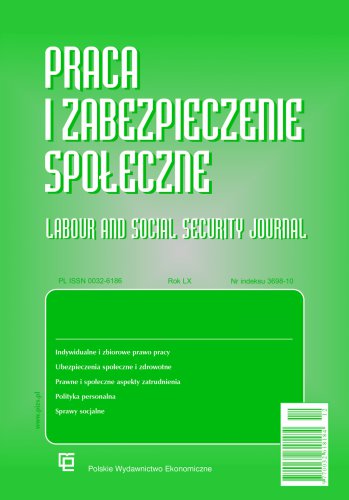Impact of the fourth industrial revolution on access to justice in Brazil
The purpose of this article is to analyze the relationship between the innovations introduced into Brazilian law with Process 4.0 and Artificial Intelligence and access to timely and satisfactory judicial protection. The authors indicate how Artificial Intelligence is regulated and applied by Brazilian courts and the National Council of Justice, and what impact it has on labor courts and workers' rights. A deductive, qualitative method based on bibliographic research was used to develop the article.
References
Bibliografia/References
Bendery, J., Federal Judges Are Burned Out, Overworked And Wondering Where Congress Is. Huffington Post. <https://www.huffpost.com/entry/judge-federal-courts-vacancies_n_55d77721e4b0a40aa3aaf14b>. Acesso 28.12.2021.
Bonat, D., Peixoto F. (2020). Racionalidade no direito: inteligência artificial e precedentes - 1. ed. - Curitiba: Alteridade.
Cappelletti M., Garth B. (1988). Acesso à Justiça. Porto Alegre: Sérgio Antônio Fabris Editor.
Dinamarco, C. (2009). A instrumentalidade do processo. 14ª ed. São Paulo: Malheiros.
Fierens, M., Rossello, S., Wauters, E. (2021). Setting the Scene: On AI Ethics and Regulation. In: De Bruyne J., Vanleenhove C., eds. Artificial Intelligence and the Law. Centrum voor Verbintenissen-en Goederenrecht. Intersentia.
Gonet, P. G., Mendes, G. F. (2021). Curso de direito constitucional. 16. ed. São Paulo: Saraiva Educação,
L.F. SALOMÃO Inteligência Artificial: Tecnologia aplicada à gestão dos conflitos no âmbito do Poder Judiciário Brasileiro. p. 69. <https://ciapj.fgv.br/sites/ciapj.fgv.br/files/estudos_e_pesquisas_ia_1afase.pdf>. Access 22.12. 2021.
Lusa, J. Diário de Notícias. <https://www.dn.pt/poder/entrevista-juizes-da-relacao-do-porto-sobrecarregados-com-10-a-12-processos-por-mes----presidente-10135859.html>. Acesso 28.12.2021.
Nunes, D., Marques, A. L. P. C. (2018). Inteligência Artificial e Direito Processual: vieses algorítmicos e os riscos de atribuição de função decisória às máquinas. Revista de Processo, vol. 285.
Santos, B. (1986). Introdução à sociologia da Administração da Justiça. Revista Crítica de Ciências Sociais, n. 21.
Schwab, K. (2016). A Quarta Revolução Industrial, São Paulo: Edipro.

